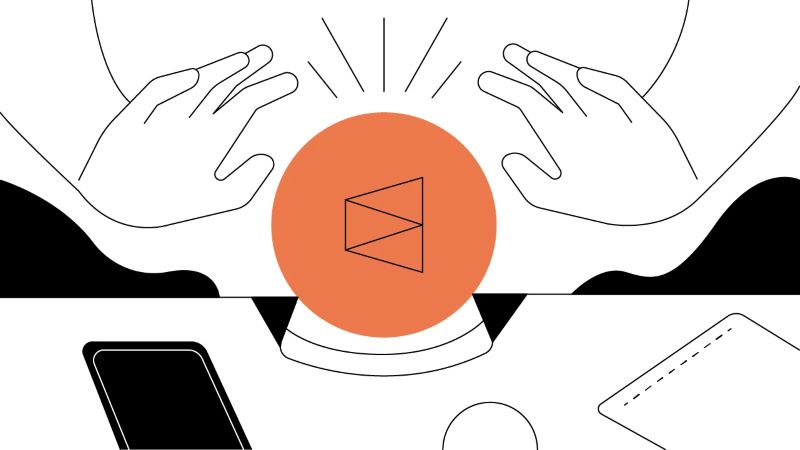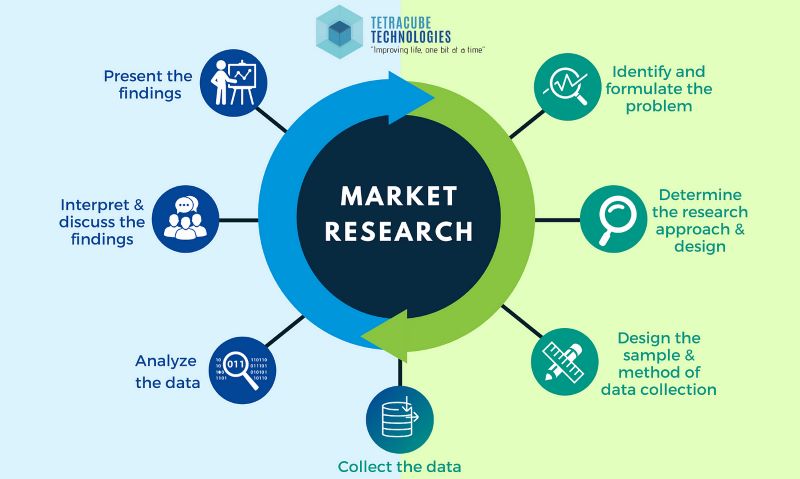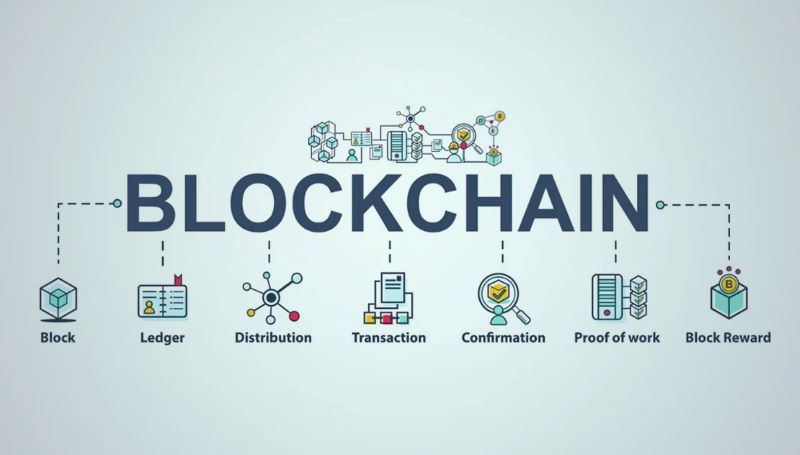Blockchain Prediction Market: Unveiling the Future of Forecasting
Gone are the days of hunch-based forecasts. In sweeps the era of the blockchain prediction market, a game-changer making waves in the way we predict events. With blockchain at its core, this tech melds crowd wisdom with a fail-safe ledger to craft a forecast system that’s nothing short of revolutionary. We’re no longer just bystanders; we’re active players shaping the future, one prediction at a time. Stick around as I dissect this phenomenon, examining how its inner cogs tick with precision to bring you outcomes that are as reliable as they are groundbreaking. This isn’t just a bet; it’s the new blueprint for forecasting brilliance.
Understanding the Mechanics of Blockchain Prediction Markets
How a Decentralized Forecasting Platform Operates
Let’s dive into how decentralized forecasting markets work. Imagine a place where you can bet on future events. But not just any place – one that’s powered by blockchain. No one person is in charge. It’s like a group project, and everyone in the group has a say.
Imagine that you think a certain team will win the big game. You put some crypto down to say they will. Others may bet against you, saying they won’t. This all happens on a blockchain-based prediction platform.
So, how do people decide who wins the bet? That’s where smart contracts come in – we’ll touch on these in a bit. Now, after the game, if you’re right, the smart contract sees this and you get your winnings. Simple, right?
Now think about how this kind of betting is different from normal betting shops. Since it’s decentralized, it means no middleman takes a cut. Plus, blockchain makes it super safe and open. You can see all bets, and once the smart contract makes a decision, no one can change it.
The Role of Smart Contracts in Facilitating Predictions
Smart contracts are like robot helpers living on the blockchain. They follow rules set by people, but once they’re going, no one can stop them. They act when certain things happen. For example, if your team wins, the smart contract pays you automatically.
In blockchain prediction markets, smart contracts work by checking if the event you bet on happened. Let’s say you bet that it will rain. The smart contract is set to check a weather oracle that confirms yes, it rained. Bingo, you win!

These contracts are smart because they do all this without any human help. Plus, they hold all the bet money — or in tech speak, they’re ‘escrow’. This means that the money is locked until the event’s outcome is confirmed.
And the cool thing is, smart contracts in prediction markets can handle lots of bets at once. Plus, because everything is on the blockchain, it’s all fair and square. You can check the contract and see exactly what will happen depending on different outcomes.
So, the smart contract does the heavy lifting. It checks who won, and then automatically pays out. It’s trustless, meaning you don’t need to trust a person to handle your money. The code does it all.
That’s why prediction markets on the blockchain are such a big deal. They’re open, fair, and autonomous. They can take the wisdom of crowds, calculate the odds, and keep everything on the level.
With tools like Augur and Gnosis, these markets bring betting to the digital age. They use blockchain to make predicting and betting more accessible to everyone. And with the rise of crypto, this world of prediction only grows by the day.
Remember, at the heart of blockchain prediction markets are smart contracts. They’re the key to making bets work without any hitches. With them, these markets can change how we look at forecasting and betting for good.
Analyzing the Efficiency and Outcomes of Prediction Markets
Assessing the Accuracy of Blockchain-Based Forecasting
Blockchain-based prediction platforms turn guesswork into science. They let people bet on future events and win crypto if they guess right. The crowd’s wisdom shapes these markets, helping us judge the likely future. These peer-to-peer prediction settings are fast and run on trust, thanks to blockchain magic.
Smart contracts in prediction ensure fairness and swift payouts. Once a future event’s outcome is clear, smart contracts pay the winners. This tech takes humans out of the loop, slashing the risk of errors or bias. It works like clockwork and is what makes decentralized forecasting markets tick.
Do these markets get it right often?
Yes, more often than not. They tap into crowd wisdom, where many views combine to predict outcomes sharply. This diversity brings us closer to the truth, boosting prediction market accuracy.
Such broad participation also leads to robust blockchain market analysis. It makes betting with blockchain tech shine. We see it in action with platforms like Augur and Gnosis. They not only host bets but also serve as real-world testing grounds for crowd predictions.
Still, no system is perfect. Errors can come from false crowd beliefs or tech hiccups. But as we refine these blockchain forecasting mechanisms, their forecasts keep improving.
Tokenomics and Its Influence on Prediction Market Dynamics
Tokenomics is about how crypto tokens work within their markets. It runs the show in blockchain event outcomes. The value and use of tokens influence how people bet and how markets move. Good tokenomics can mean a healthy, active market.
In prediction markets and crypto-assets, tokens can stoke trading. They often reward those who get their forecasts right. These tokens might also have other uses, like voting on platform rules or paying for services. This multi-use angle is key in decentralized betting markets. It draws more folks in and keeps them engaged.

Why does tokenomics matter here?
Because it shapes everything in the market. From how much you might win to the rules of betting, tokens call the shots. It’s the economic bloodstream of blockchain betting.
Prediction market dynamics are delicate. Poor tokenomics can scare people off or skew the market. But sort it out, and you’ve got a powerhouse for crypto assets for betting.
Predicting finance, politics, or sports outcomes on blockchain demands trust. Good tokenomics builds this trust and keeps markets fair. It helps everyone believe in the game’s rules, knowing they’ll get what they earn.
In short, tokenomics is not just some buzzword. It’s the backbone of the fairness and thrill in blockchain betting. It makes sure that, when we bet on tomorrow, we’re all in it together, with rules we trust, using tech that delivers.
Remember, blockchain’s potential in forecasting isn’t just hype. It’s a reality unfolding today, shaping how we bet on what comes next. Blockchain is redefining the betting landscape, one smart contract at a time. And as we look ahead, these prediction markets could very well become our best peek into the future.
The Technology Behind Decentralized Betting: Oracles and Smart Contracts
Integrating Oracles for Real-World Data Feeding
Blockchain-based prediction platforms must handle real-world data. This is where oracles step in. Oracles are sources that feed reliable data into smart contracts. They move info from the outside world into the blockchain. So, they let smart contracts know what’s happening. This way, the smart contracts can settle bets fairly, based on actual outcomes.
Let’s say you bet on a sports game using a blockchain forecasting mechanism. An oracle would tell the blockchain what the final score was. That’s how the smart contract knows who to pay out. Trust in these platforms hangs on the data being right.
Oracles need to be top-notch. Bad or wrong info ruins the trust in the system. So, we rely on many oracles. Or one really good, trustworthy oracle. These sources can be news sites, official statements, or even sensor data. They record real events and tell the smart contracts what happened.
By using smart oracle usage in prediction markets, we bet on stuff like sports or finance and prediction markets. As long as the data is good, the bets are fair.
The Mechanism of Smart Contract-Based Betting Systems
Smart contracts make betting with blockchain tech work automatically. Let me break this down: smart contracts are like rules for money that live on the blockchain. When you make a bet, you’re sending crypto into a smart contract. It holds the stakes until the event’s outcome becomes known. If you win, the smart contract sends you your winnings.
This is trustless prediction marketplaces. You don’t need a middleman. You just trust the code. It’s open for everyone to see. So, betting is fair and safe from tampering. This is what gives the prediction market accuracy a solid base.

Using Ethereum-based prediction markets as an example, a smart contract might let you bet on a football game. Your bet and others go into one big pot. Say you win; the smart contract checks the data from the oracle. Then it gives you your part of the pot. It’s like a robot bookie.
Still, smart contracts must be right. A bug could mean lost money. And sometimes, they can be hard to change. But most time, they work just great. They save time and keep things honest. This is why we see more peer-to-peer prediction challenges online.
These are complex tech pieces; they’re the heart of decentralized betting markets. We always need to check and double-check them. So, everyone playing knows it’s a fair game. And nobody is pulling a fast one.
Oracles and smart contracts changed how we think about betting on anything. From sports outcome predictions with blockchain to predicting political events, these tools are shaping the future. They let us play with others from anywhere, using crypto assets for betting. It’s fun, it’s fair, and it’s the future.
Regulatory and Investment Perspectives in Blockchain Prediction Markets
Navigating Legalities: Global Prediction Market Regulations
You might wonder, “Are blockchain prediction markets legal everywhere?” No, they vary by region. In some places, they fall into gray areas where laws still need to catch up with tech. In the U.S., prediction markets must meet strict rules to operate. They must prove they don’t harm the public and have tight controls in place.
How do prediction markets work? You bet on events like sports, politics, or price moves. If right, you win crypto! If not, you lose your stake. This is done through smart contracts – bits of code that run the rules of the bet.
Now, talking about blockchain market analysis, these markets are still new. They are growing as more people enjoy betting with blockchain tech. But they need the right regulations to keep going strong. Some fear that without rules, bad players could mess things up for everyone.
Here’s what’s cool about decentralized forecasting markets. They let people bet peer-to-peer without needing a middle guy. It’s just you, your prediction, and the smart contract. It’s trustless, meaning you don’t need to trust anyone but the code.
Yet, there’s more than just fun. These markets could change how we see and share info. They could help us figure out what might happen next, almost like having a crystal ball made of code!
Identifying Investment Opportunities in Prediction Market Platforms
Investing in prediction markets can be thrilling. Why? Because you get to guess on future events and may earn from it. You are not just watching; you’re part of the game. Imagine betting on who’ll win the next big soccer match, or guessing what the Bitcoin price will be next week.
But it’s not all guesswork. There’s solid data behind these bets. This is where blockchain forecasting mechanisms come in. They crunch tons of info to help us make better bets. It’s like having a super-smart buddy who knows a lot about what’s going to happen.
Smart contract-based betting is important here. It ensures all bets are fair and safe. Plus, crypto assets for betting are big now. They’re like the chips you use to bet but cooler, because they’re crypto!
Tokenomics in prediction markets are key, too. They determine how much you might win or lose. Just like any market, the more people want to bet, the juicier the pot gets. So, knowing tokenomics can help you spot good bets.
Blockchain platforms for forecasting come in different flavors. Augur prediction market is one, and the Gnosis prediction platform is another. What they share is using crowd wisdom on blockchain. Yep, that’s many brains coming together to make smarter bets.
Prediction markets and crypto-assets are a test of skill and luck. Like any investing, it’s not risk-free. But for those who love the game, the blockchain brings exciting times. Just be sure to check the laws where you live and play it safe. Remember, knowing how these markets tick can give you an edge. So, keep learning and maybe you’ll make some good calls!
In this post, we dived into how blockchain prediction markets work. We saw that smart contracts and oracles play key roles. They make sure bets are fair and use real-world data to settle them. We also looked at how these markets show what people think will happen in the world and influence the flow of money in these betting systems.
I think blockchain prediction markets are smart and can change how we see the future. They offer a new way for us to weigh in on events and maybe make some money. But, we have to watch out for rules that change from place to place. Investors, take note – prediction markets could be your next big chance.
To wrap it up, the world of blockchain prediction markets is complex but full of potential. Whether it’s the tech that runs them or the rules that guide them, it’s a world worth exploring. Let’s keep an eye on where they go next!
Q&A :
What is a blockchain prediction market?
A blockchain prediction market is a platform where individuals can make bets on the outcome of future events using cryptocurrencies. These decentralized markets leverage blockchain technology to ensure transparency, immutability, and trust, by recording transactions on a public ledger. Users can speculate on various topics such as elections, sports events, economic indicators, and more, with outcomes and payouts being determined by smart contracts.
How do blockchain prediction markets differ from traditional betting platforms?
Blockchain prediction markets differ from traditional betting platforms in several fundamental ways. Firstly, they are decentralized, meaning they are not controlled by a single entity which reduces the risk of manipulation and censorship. This decentralization typically provides greater transparency, as all bets and outcomes are recorded on the blockchain. Smart contracts automatically execute payouts, ensuring fairness and reducing the need for intermediaries. This often results in lower fees and quicker settlements compared to traditional platforms.
Are blockchain prediction markets legal?
The legality of blockchain prediction markets varies by jurisdiction. In some countries, they may be considered a form of gambling and subjected to specific regulations or outright bans. Due to the decentralized nature of blockchain prediction markets, it is more challenging for governments to enforce these regulations. Users should consult their local laws and regulations before participating in these markets to ensure compliance.
Can you make money with blockchain prediction markets?
Yes, it is possible to make money with blockchain prediction markets by correctly predicting outcomes of future events. Participants profit by buying shares for an outcome they believe will happen; if their prediction is correct, they receive a payout. However, like any form of speculation, there is a risk of loss—outcomes are uncertain, and losing predictions mean losing the money wagered. As with any investment, one should not bet more than they can afford to lose.
What are the risks associated with using blockchain prediction markets?
Blockchain prediction markets carry several risks. Market volatility can significantly impact predictions, and participants may lose funds due to rapid price changes. Regulatory risks also exist; the markets may face legal challenges or crackdowns by authorities. Operational risks include smart contract vulnerabilities, which, if exploited, can lead to loss of funds. Lastly, the lack of mainstream adoption can result in lower liquidity, making it difficult to buy or sell positions when desired. Users should perform due diligence and understand the risks prior to engaging with these markets.


